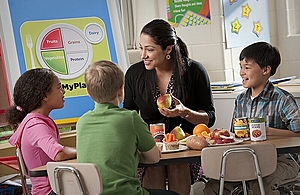COP26 President speech at opening of Placencia Ambition Forum
COP26 President Alok Sharma gave a video speech at the opening of the Placencia Ambition Forum on Monday 20 April 2020:
We can’t all meet in person today.
It is only right that we follow the best scientific advice on COVID-19 and do everything we can to avoid the spread of this deadly disease.
We must also follow the best scientific advice on climate change.
It tells us failure to act will have irreversible consequences.
As temperatures continue to rise, droughts and heatwaves will become more common.
Crops will fail.
Sea levels will rise.
Hurricanes will become stronger and more intense.
Lives will be lost.
Communities uprooted.
Nature and biodiversity will be devastated.
And a catastrophic economic cost will be exacted.
We know that many people are already feeling these devastating effects.
Whether we live in the South or the North, the East or the West, we share one life-giving but fragile planet. And all our futures are intrinsically linked.
As incoming Presidency, with our partners Italy, we pledge to keep a focus on increasing climate ambition and action, even through this very difficult period.
I wanted to commend Belize for its leadership in hosting the Forum and ensuring the voices of the most vulnerable are heard.
The Placencia Ambition Forum serves as a timely reminder that climate change is an existential issue.
The world needs to see more ambition to tackle the climate crisis. More ambition on adaptation and resilience, more ambition on mitigation, and more ambition on support to vulnerable countries. And that ambition needs to translate into real world action.
Every country must come forward with the highest possible ambition in their nationally determined contributions and long-term strategies.
I want to recognise those countries that have already shown leadership with more ambitious NDCs – the Marshall Islands, Suriname, Norway and, of course, just recently, Chile.
I hope many more will follow in their footsteps. The UK will play its part and come forward with an increased NDC well ahead of COP26.
Together we can build resilience in our communities, societies and economies, creating jobs and tackling climate change.
Our Presidency is committed to raising the voices of those most affected, but least able to address climate change. We will work to ensure these communities are supported to recover in a clean, resilient, inclusive and healthy way.
To do so we need to transform global financial flows. We will use our presidency to unlock action by the financial sector.
I look forward to welcoming you to COP26.
The focus of the forum is to drive climate action and ambition in Nationally Determined Contributions in the lead up to COP26 and beyond in the context of the current COVID-19 pandemic.
